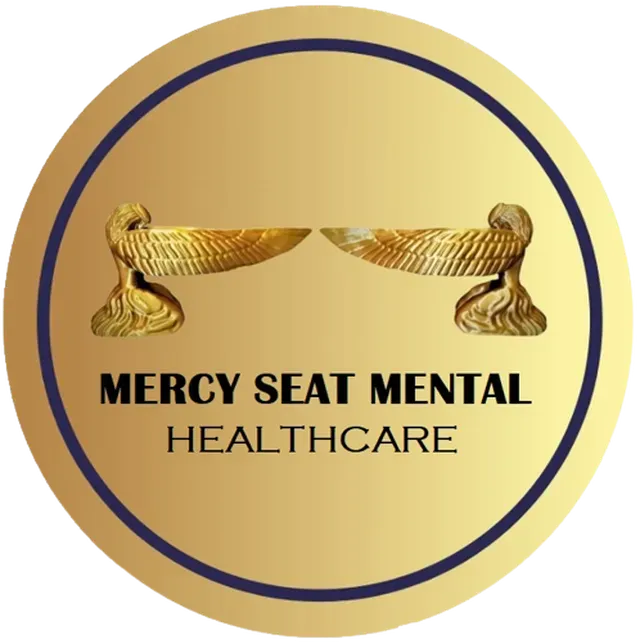IN THIS COMPREHENSIVE POST, WE DELVE INTO THE INTRICACIES OF BIPOLAR DISORDER, EXPLORING ITS TYPES, SYMPTOMS, CAUSES, AND MANAGEMENT STRATEGIES. WITH A BLEND OF PROFESSIONAL INSIGHT AND COMPASSIONATE CARE, WE AIM TO EQUIP OUR READERS WITH KNOWLEDGE,…..
By Stella A Tih, DNP, PMHNP-BC
Welcome to another essential discussion here at Mercy Seat Mental Health Treatment Center. Today, we embark on a journey to understand a complex yet often misunderstood condition: bipolar disorder. Our goal is not only to spread awareness but also to foster a community where empathy and science work hand in hand, guiding us toward healing and balance.
Summary: In this comprehensive post, we delve into the intricacies of bipolar disorder, exploring its types, symptoms, causes, and management strategies. With a blend of professional insight and compassionate care, we aim to equip our readers with knowledge, hope, and reassurance.
Understanding Bipolar Disorder
Bipolar disorder, formerly known as manic depression, is a mental health condition marked by extreme mood swings that include emotional highs (mania or hypomania) and lows (depression). These phases can be starkly intense, affecting individuals’ behavior, thoughts, energy, and overall ability to carry out day-to-day tasks.
Keywords: mental health, bipolar disorder, manic depression, mood swings, mania, hypomania, depression.
Types of Bipolar Disorder
There are several forms of this condition, each defined by the pattern and severity of mood episodes.
- Bipolar I Disorder: Defined by manic episodes that last at least 7 days or severe manic symptoms requiring immediate hospital care. Depressive episodes also occur, typically lasting at least 2 weeks.
- Bipolar II Disorder: A pattern of depressive episodes and hypomanic episodes, but not as severe as the manic phases seen in Bipolar I.
- Cyclothymic Disorder (Cyclothymia): Numerous periods of hypomanic symptoms and periods of depressive symptoms lasting for at least two years (one year in children and adolescents), but the symptoms don’t meet the diagnostic requirements for a hypomanic episode and a depressive episode.
Keywords: Bipolar I, Bipolar II, Cyclothymic Disorder, mania, hypomania, depressive episodes.
Symptoms and Causes
Symptoms vary from person to person, and so do their triggers. It’s crucial to recognize these variations as they directly influence the management plan.
Mania and hypomania symptoms may include:
- Elevated mood and exaggerated optimism
- Decreased need for sleep without experiencing tiredness
- Rapid speech flow and flights of ideas
- Impulsiveness and poor judgment
Depressive symptoms may encompass:
- Feelings of sadness or hopelessness
- Loss of interest in daily activities
- Significant weight loss or gain
- Insomnia or sleeping too much
The exact cause of bipolar disorder isn’t known, but a combination of genetics, environment, and altered brain structure and chemistry may play a role.
Keywords: symptoms, causes, genetics, environment, brain structure, brain chemistry, triggers.
Managing Bipolar Disorder
While bipolar disorder is a lifelong condition, attention to lifestyle choices, ongoing psychotherapy, and regular medical care can help maintain a stable mood and live a healthy, productive life.
Medication: Mood stabilizers, antipsychotic drugs, and antidepressants can be employed under careful supervision.
Psychotherapy: Techniques like Cognitive Behavioral Therapy (CBT), family-focused therapy, and group therapy are invaluable.
Lifestyle management: Regular sleep, exercise, and mindful attention to triggers form the holistic care approach.
Support: Ongoing support from family, friends, and support groups is crucial.
Keywords: management, medication, psychotherapy, lifestyle, support groups.
Conclusion: A Message of Hope
At Mercy Seat Mental Health Treatment Center, we understand that living with bipolar disorder presents unique challenges. But remember, you’re not alone on this journey. With professional guidance, personalized care, and the support of loved ones, thriving while managing this condition is within your reach. We’re here to walk beside you every step of the way.
If you or a loved one is navigating through the ebbs and flows of bipolar disorder, we invite you to reach out to us. Let’s embrace the path to healing and balance together.
Because you matter, your journey towards mental wellness should be cushioned with mercy, compassion, and utmost care.
Keywords: hope, professional guidance, personalized care, support, mental wellness, compassion, healing, balance.
With empathy at its core, this blog aims to provide comfort and understanding, reminding readers that amidst the complexities of bipolar disorder, there is hope, and help is available.
